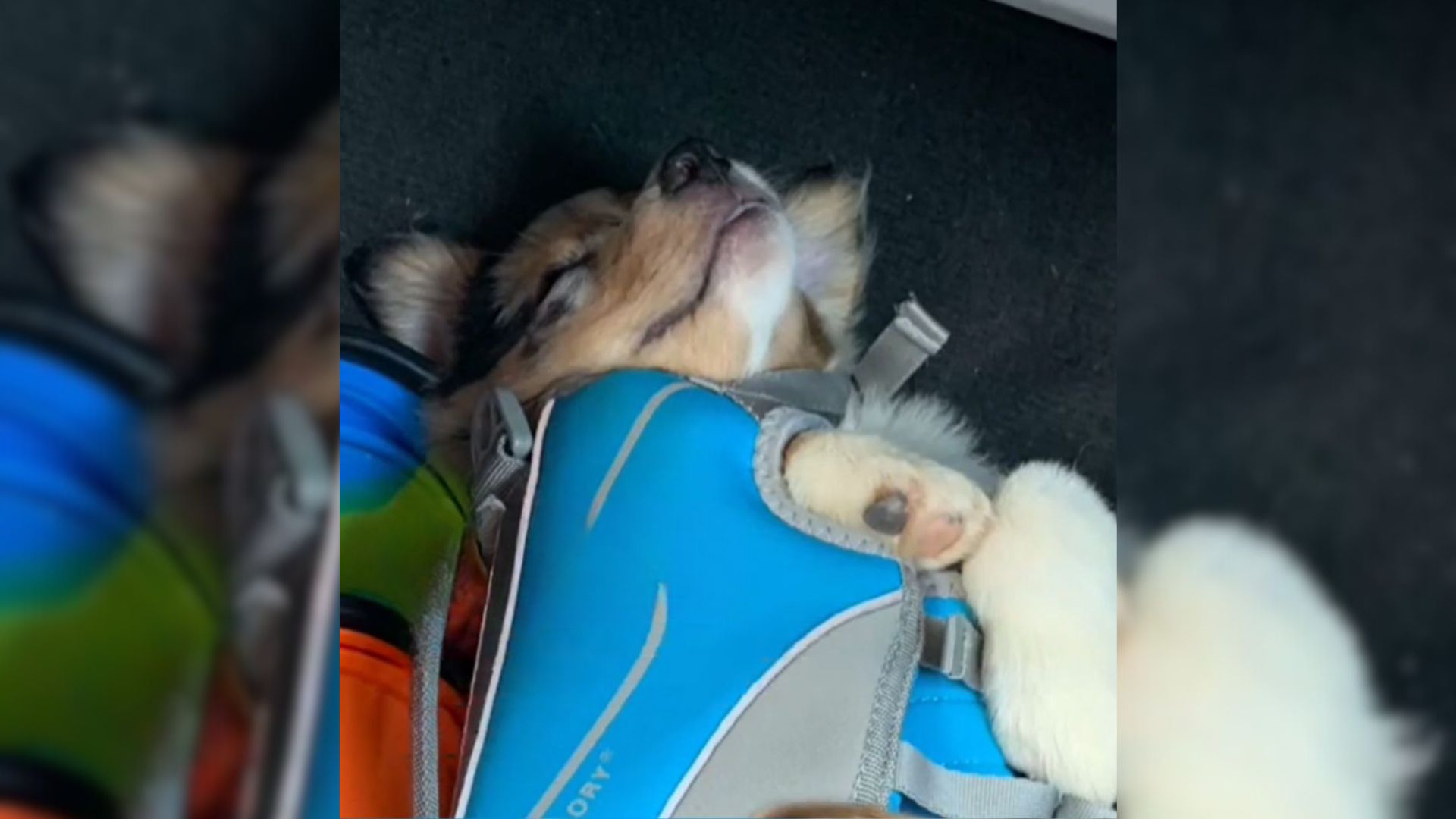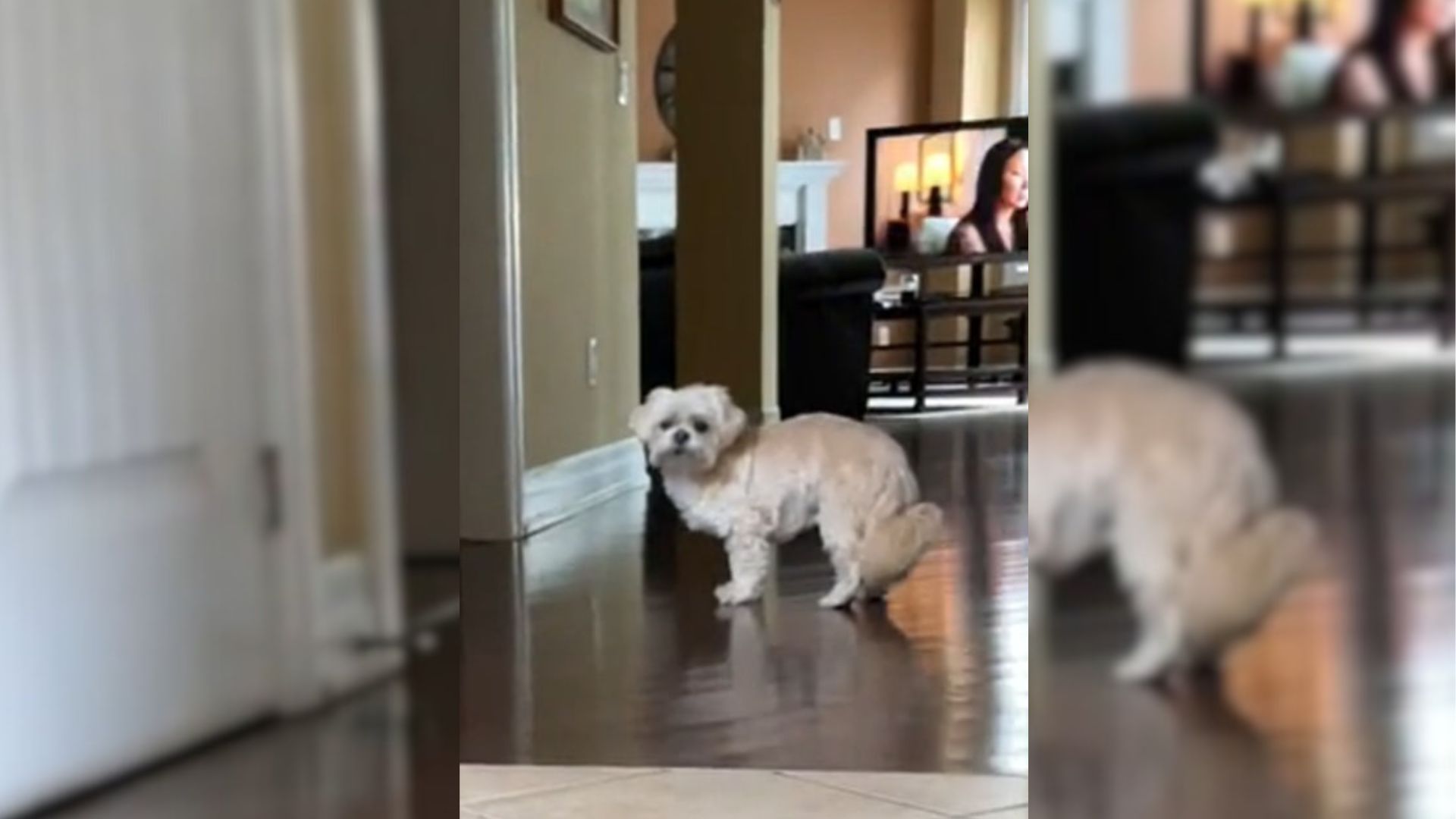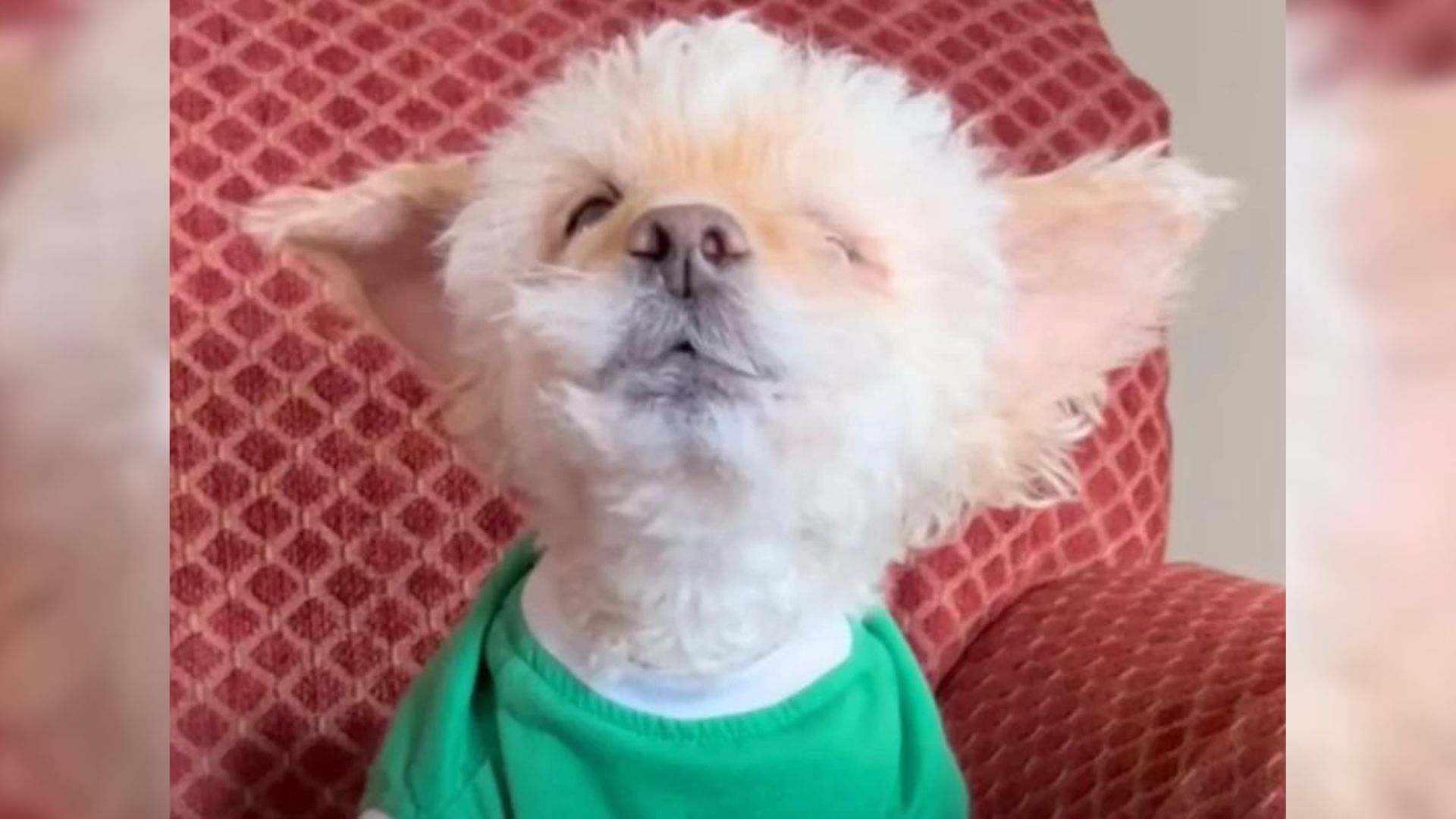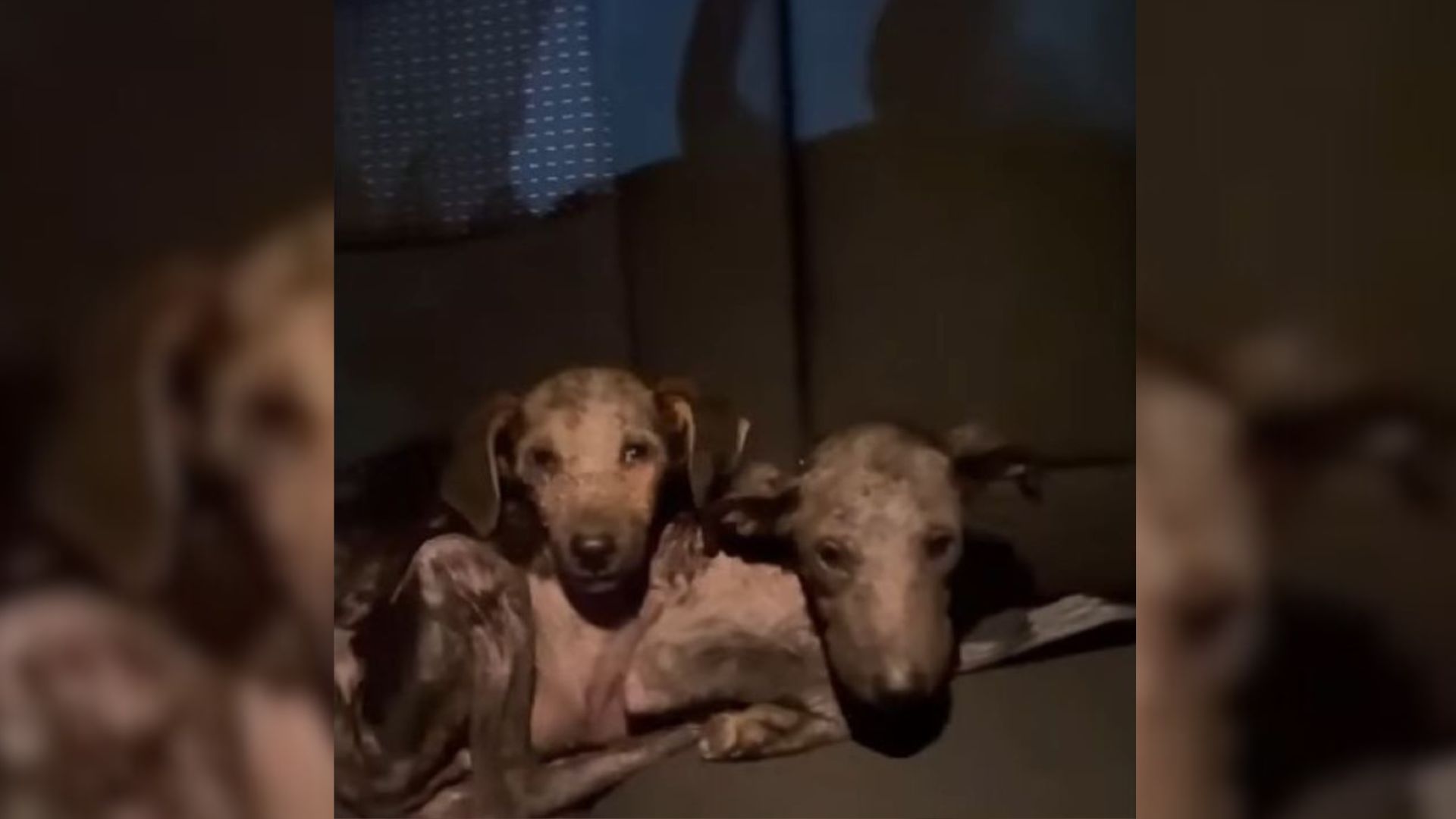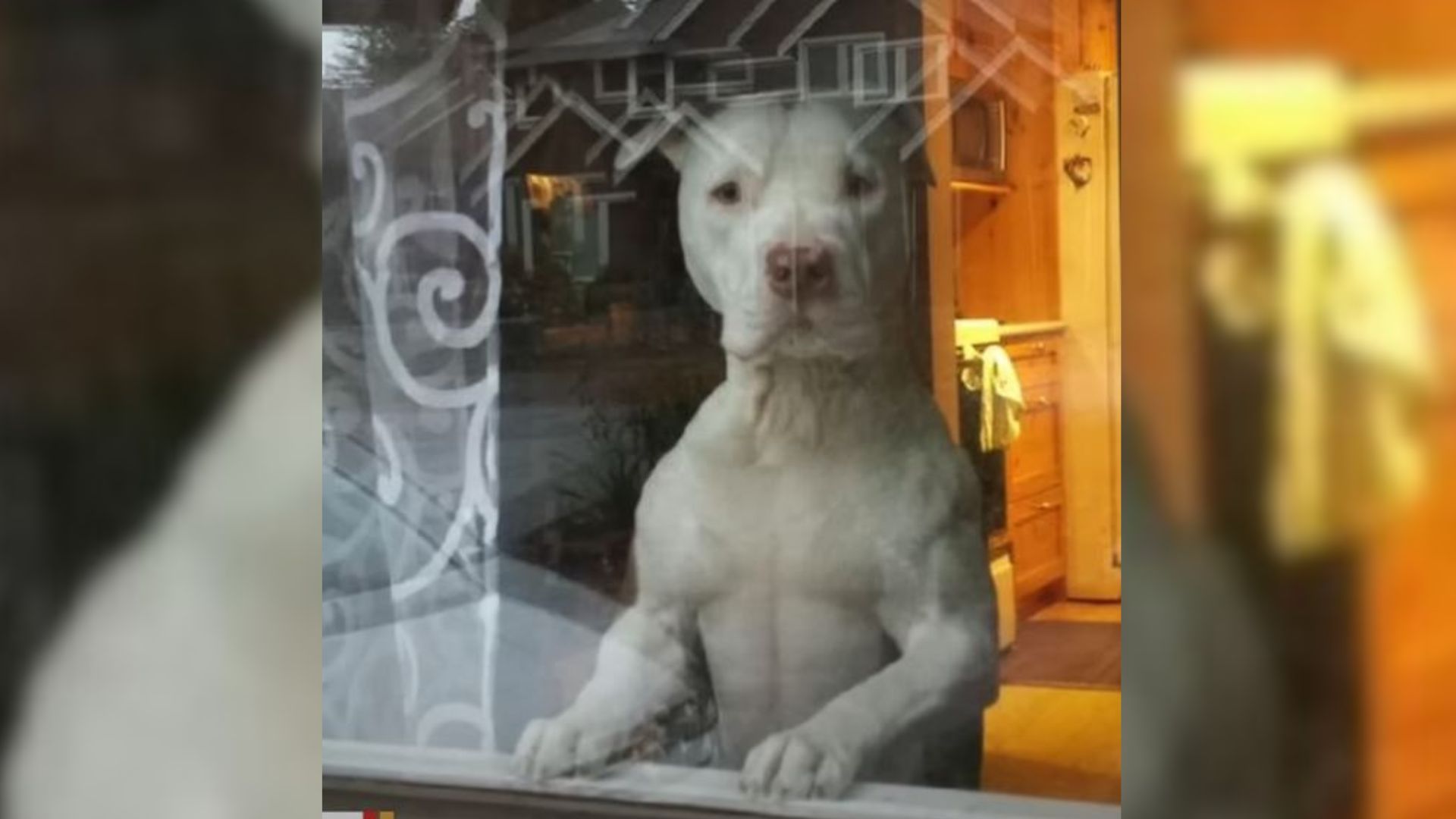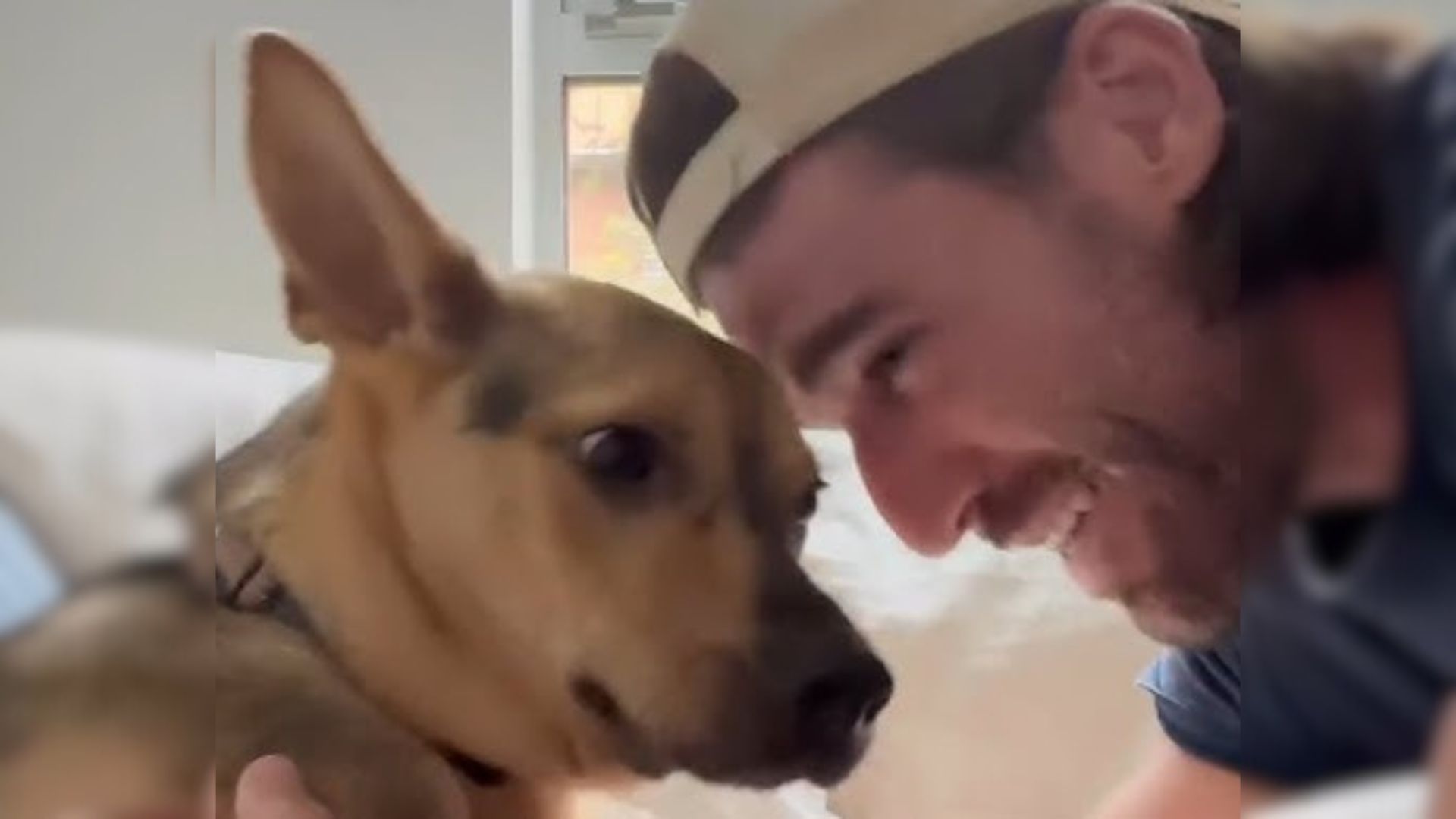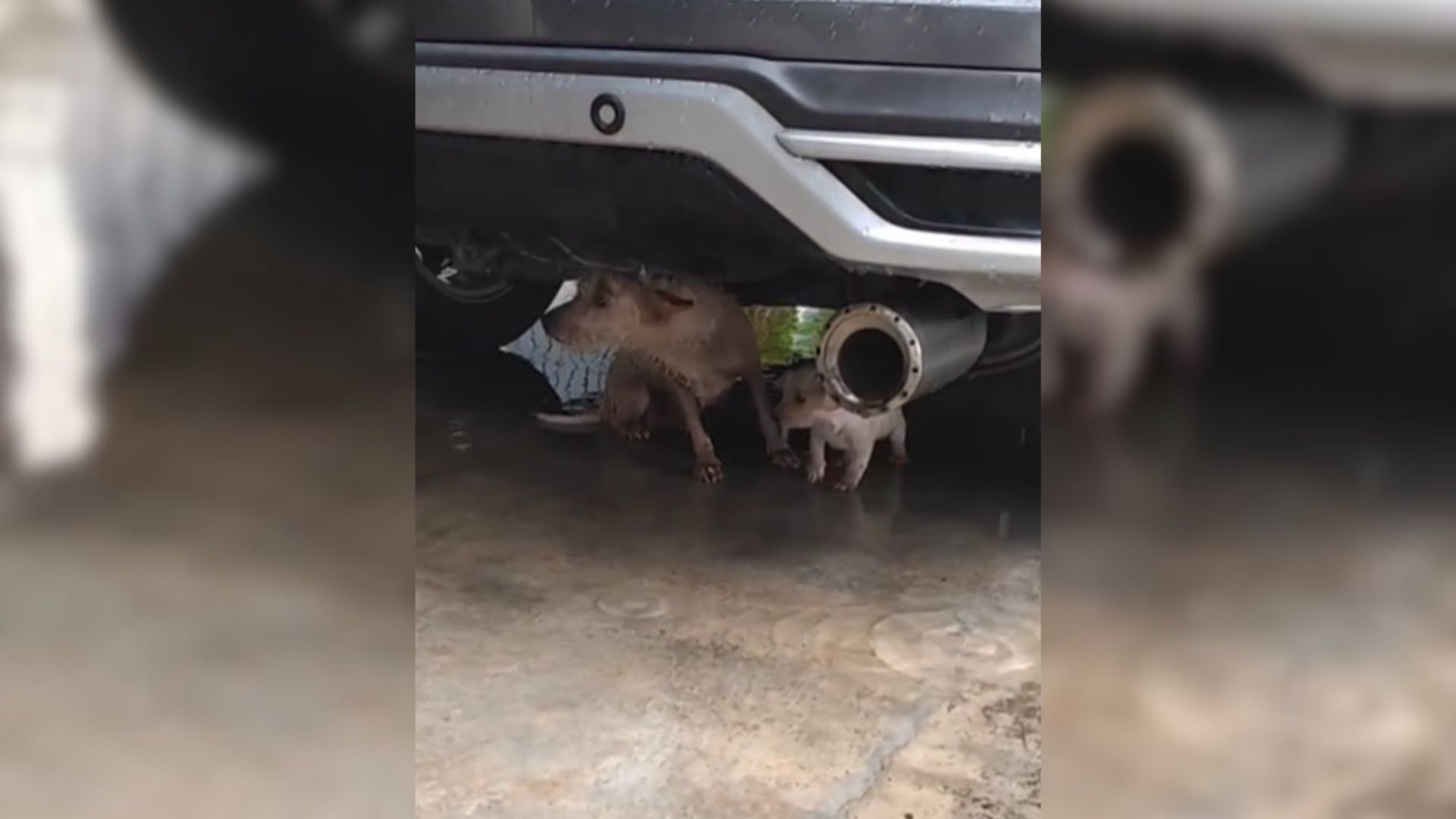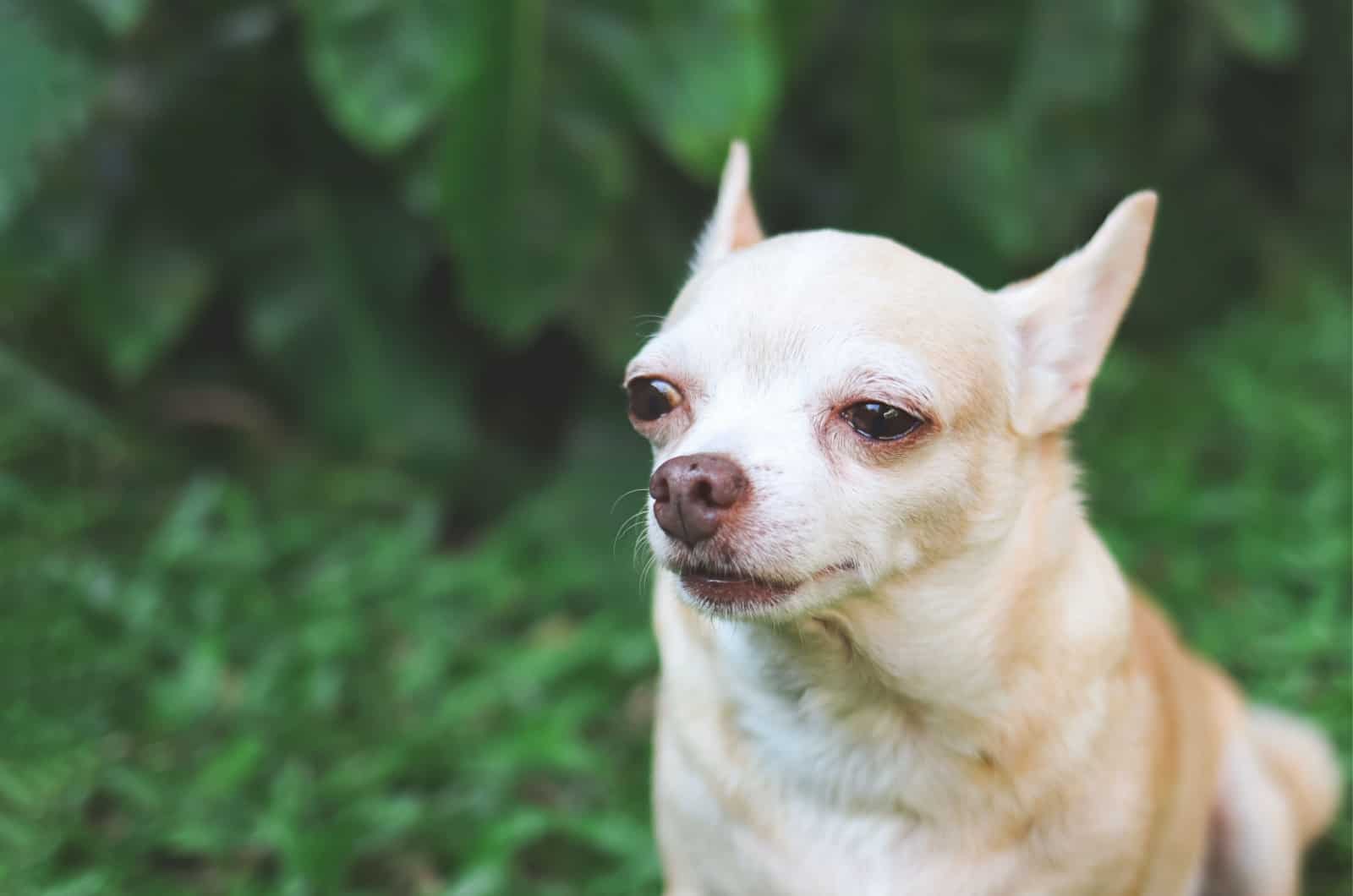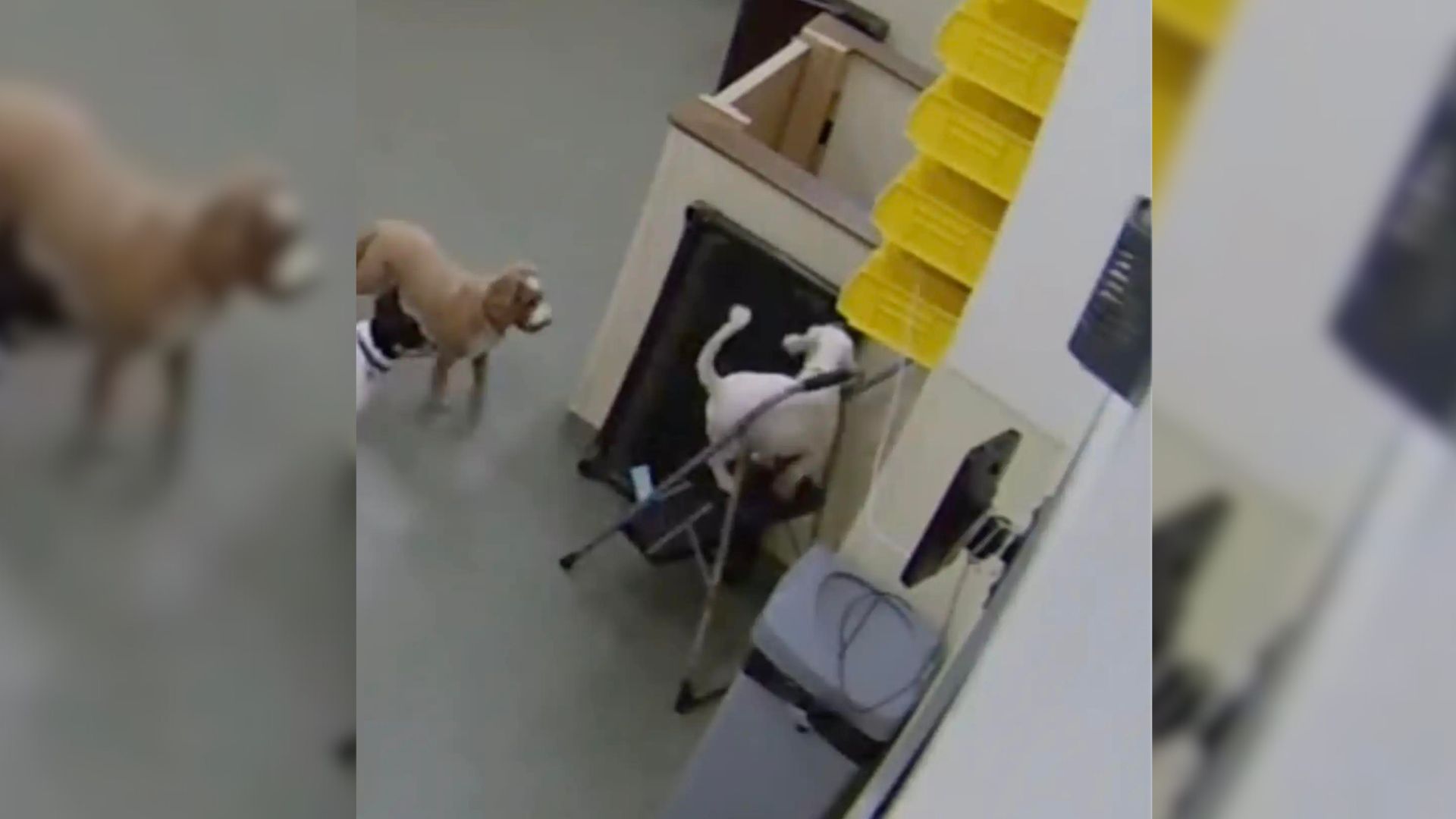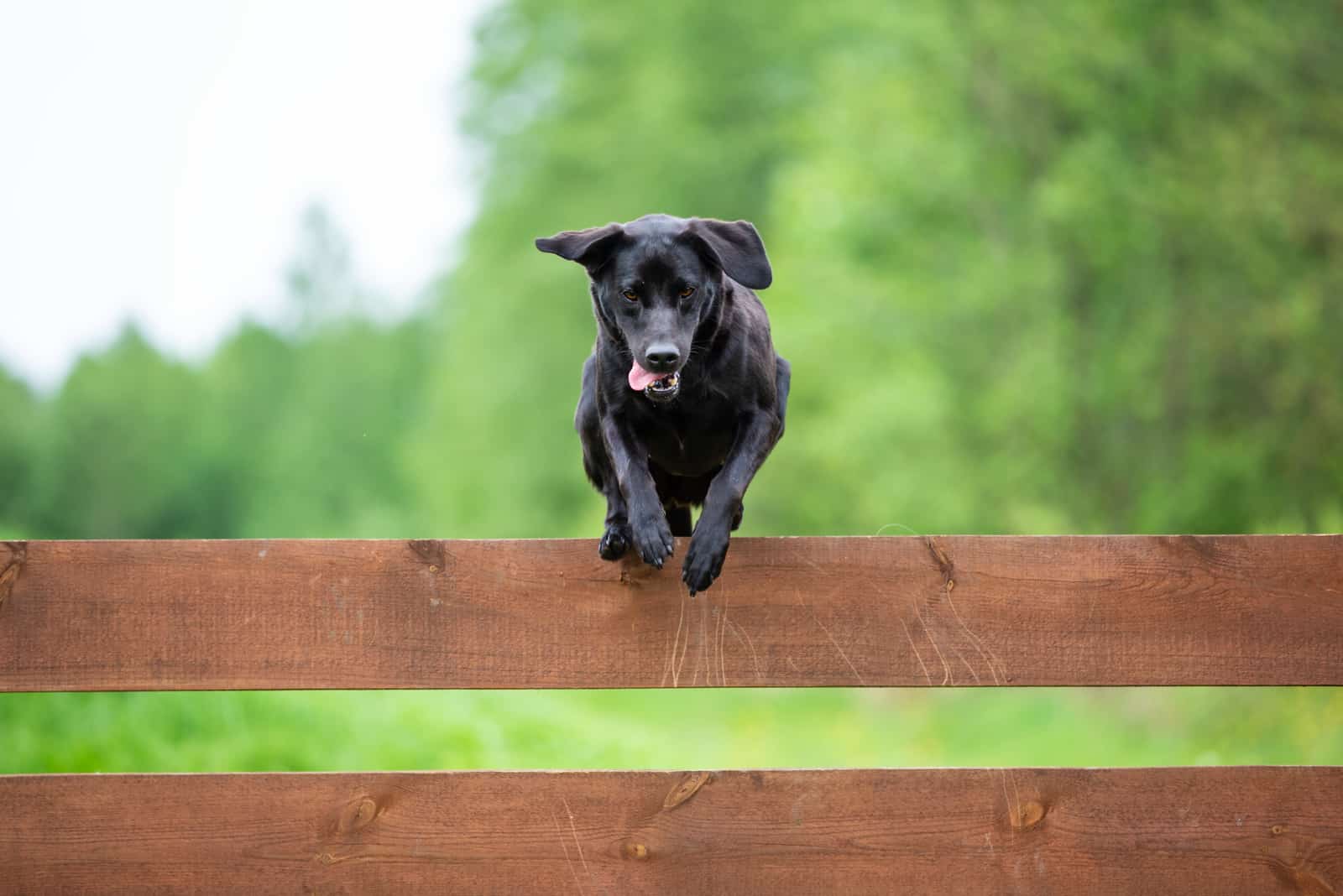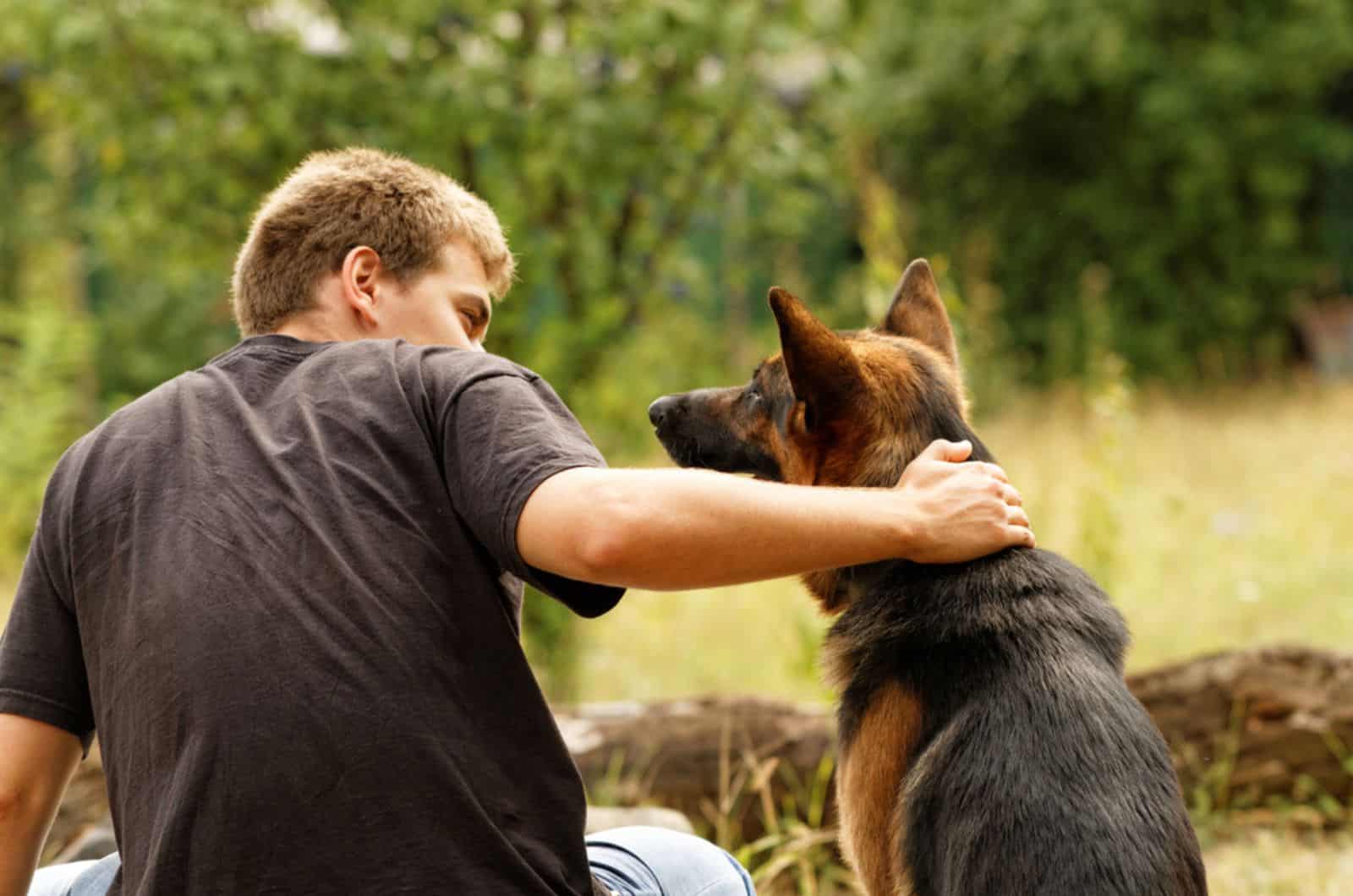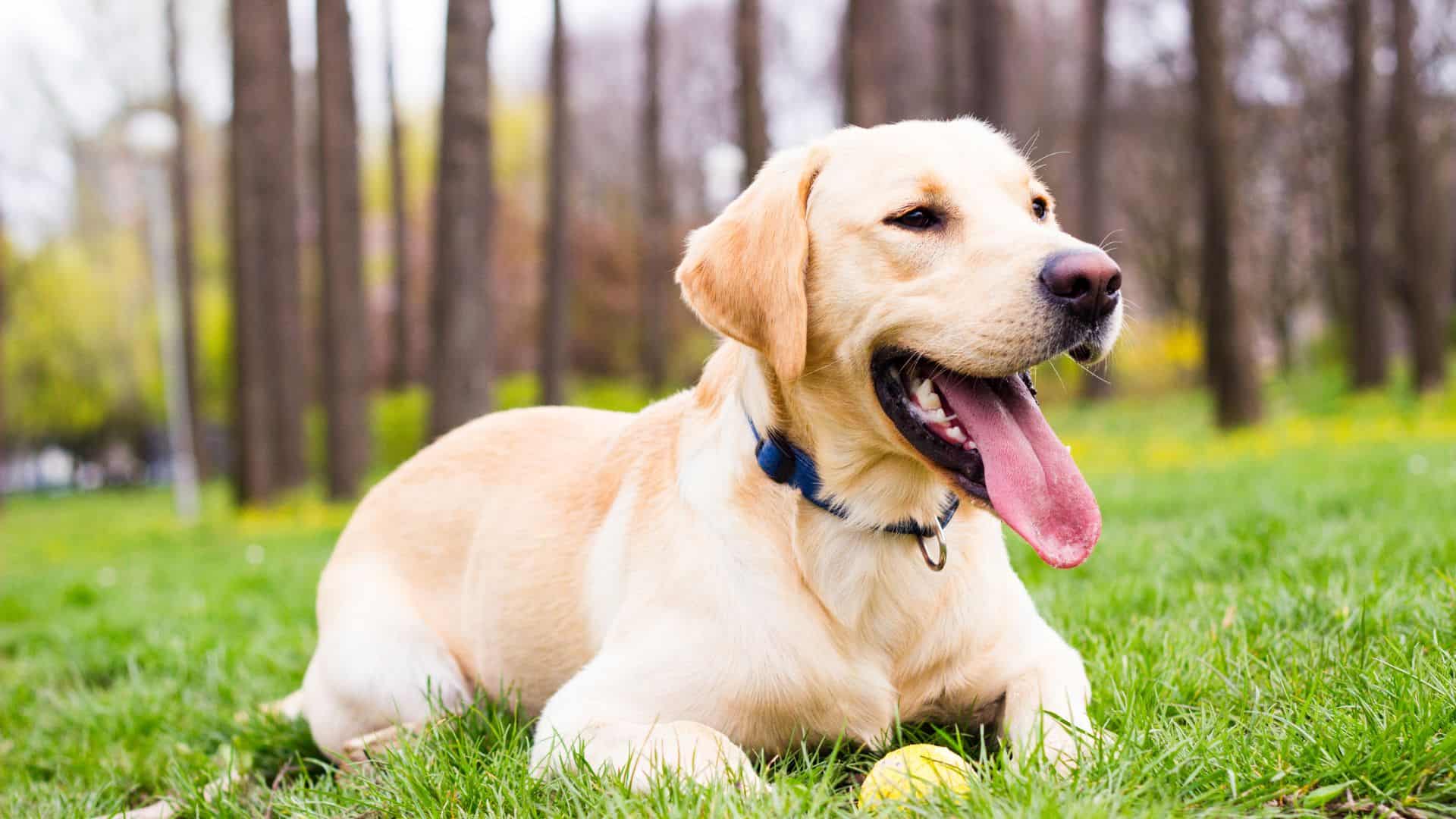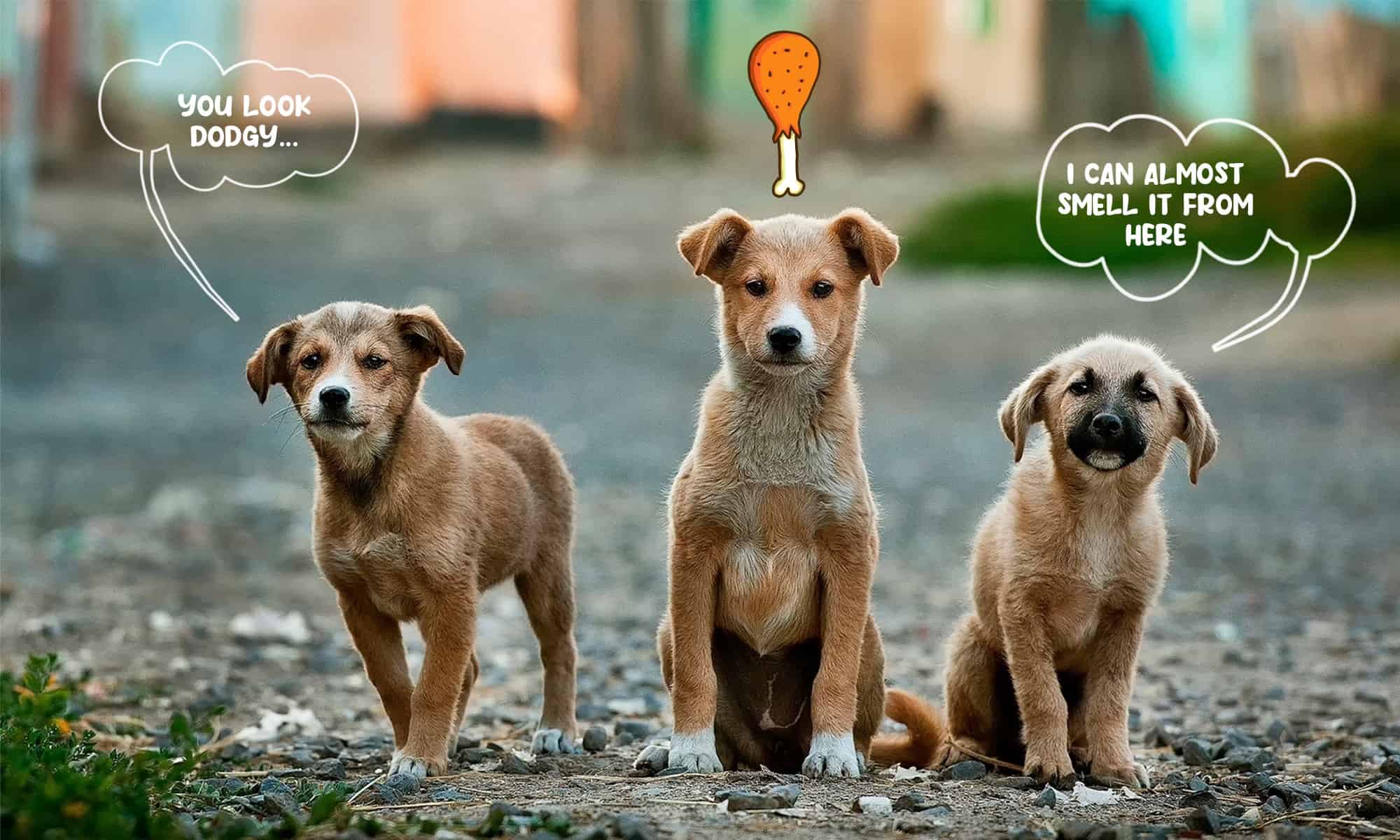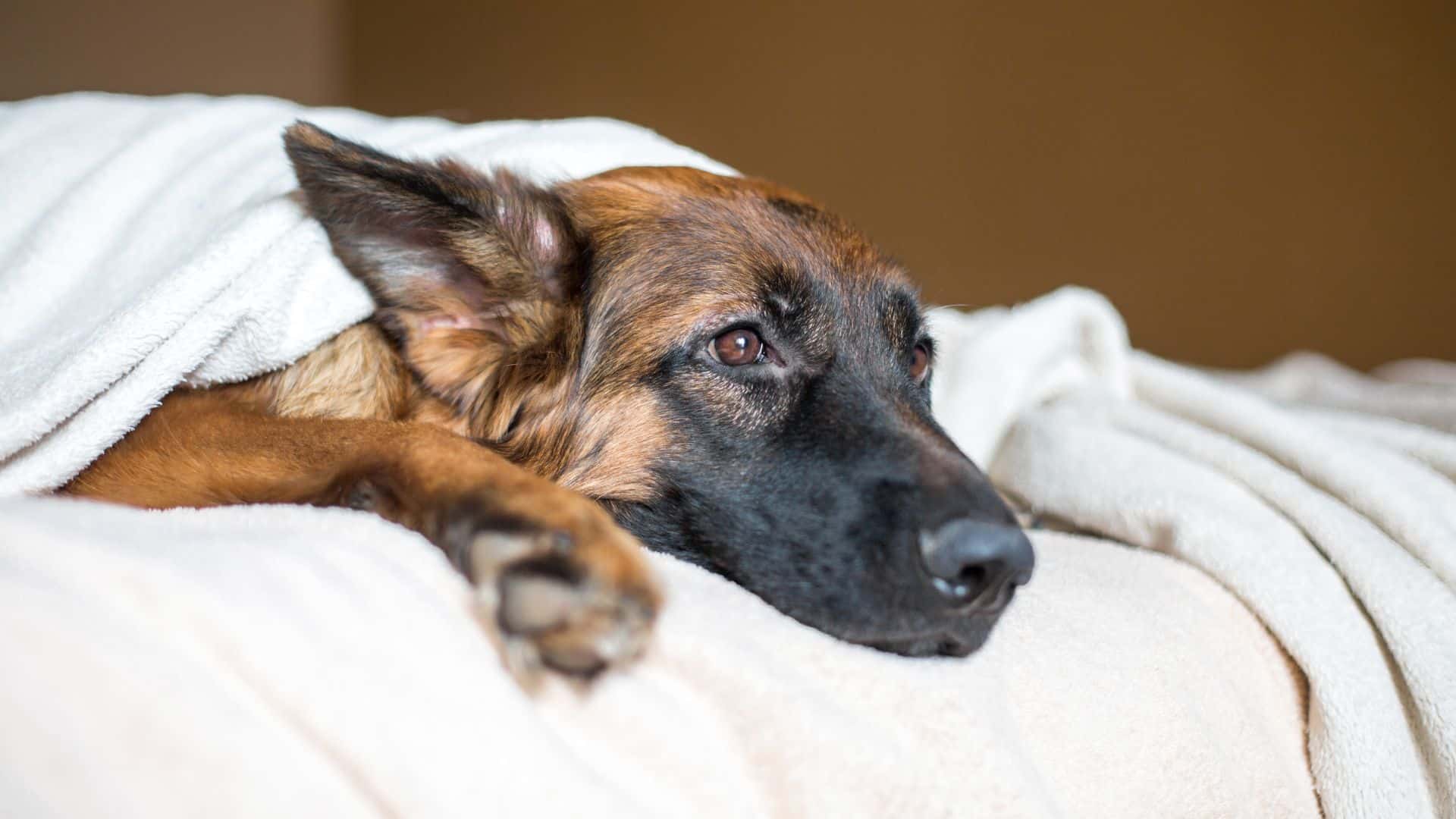Drinking water is necessary for dogs to stay hydrated. They do it when they are thirsty, and also after a lot of exercise in order to cool down.
It is supposed to be a normal and relaxing occurrence. However, sometimes it may happen that your dog coughs after drinking water, and you start wondering why that is so. I’m sure that is the reason why you are here right now…
Coughing once in a while is normal, and usually expected. Dogs, just like humans, have a cough reflex to keep their respiratory system free from dust, allergens, and other common causes.
But, what if this happens sometimes? Well, if your dog coughs after drinking water every time, it may be a sign of some serious medical condition.
Therefore, I have gathered the six most common reasons as to why dogs cough after drinking water. Keep reading to find out what causes this and how to treat it!
What Does A Dog Coughing After Drinking Water Mean?
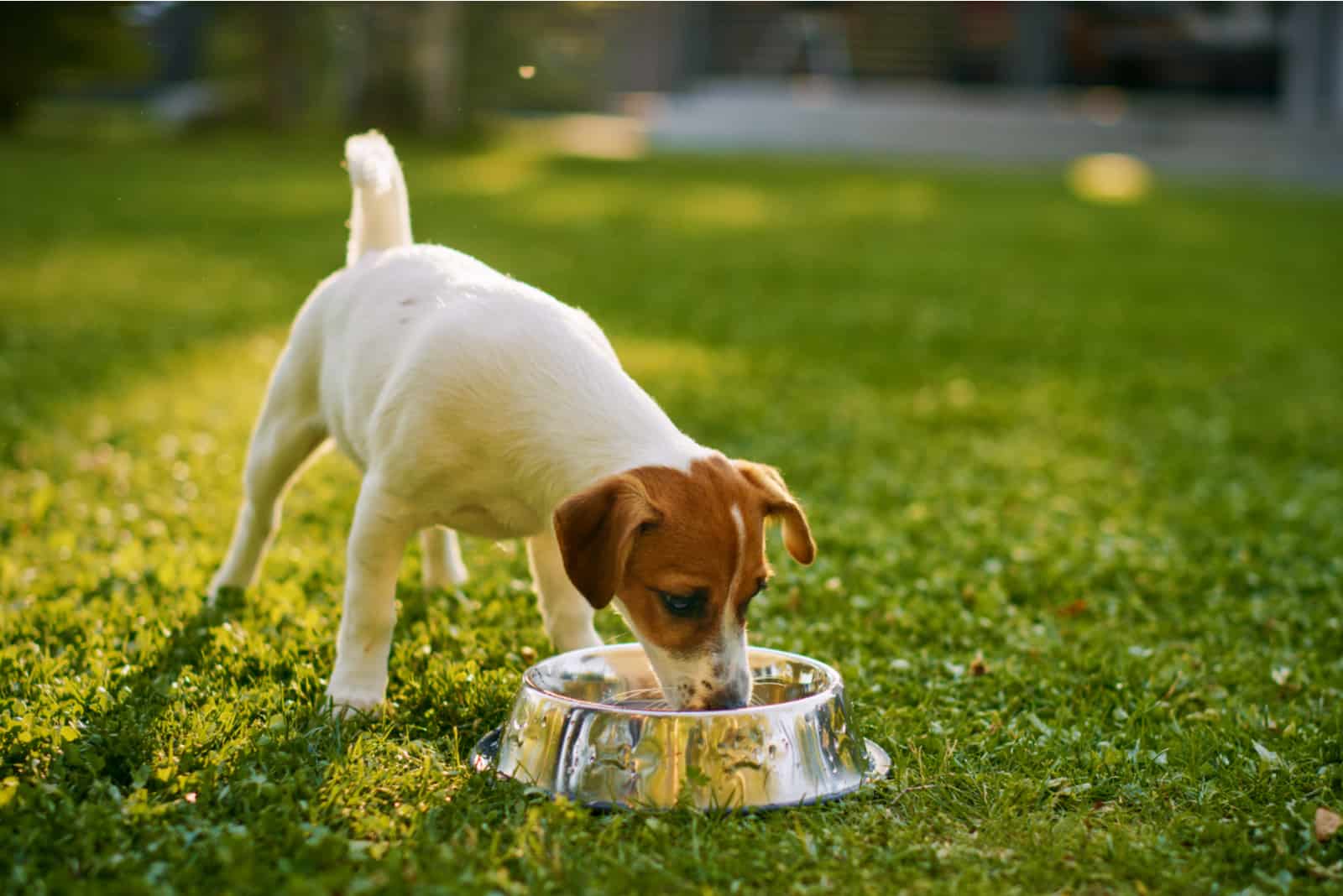
A dog’s cough can mean several things. Mostly, it can just be that some water went down the wrong way, and there shouldn’t be any reason for concern, but often, though, there are health issues connected with it.
Regular coughing is not normal, so take a look at the most common reasons why a dog coughs after drinking water and learn what some of the things are that can help your dog.
1. Hypoplastic Trachea
Hypoplastic trachea is a genetic condition that occurs when there is an abnormality in the growth of cartilage rings, which then causes a narrow trachea that interferes with breathing in and breathing out.
An underdeveloped trachea is mostly seen in middle-aged dogs, and ones that have a broad, short skull. Flat-faced dogs (brachycephalic dog breeds) such as English bulldogs, Pugs, and Boston Terriers can also have an uUnderdeveloped trachea.
So, depending on the narrowness of the windpipe, symptoms can vary, and some dogs will experience them while others will not.
A narrowed trachea will cause problems with oxygen intake, which can result in cough, especially after drinking water. Some other signs include noisy and labored breathing, aspiration pneumonia, and bronchopneumonia illness.
RELATED: Why Is My Puppy Breathing So Fast? Rapid Breathing Explained
Hypoplastic Trachea Treatment
Treatment will depend on the individual dog and its conditions. If medications are necessary, the veterinarian will prepare a treatment plan.
Some dogs will even need surgery if the situation is more serious, while others will need antibiotics, bronchodilator therapy, or steroids. Also, in some dogs with less severe tracheal narrowing, the condition can resolve itself once the dog matures.
2. Collapsed Trachea
Tracheal collapse is a genetic condition and progressive respiratory disease that happens when the tracheal rings of cartilage collapse. It mostly affects middle to old, overweight dogs, and usually, the reasons why it happens are unknown.
When the windpipe collapses, it does not hold its shape anymore, and the epiglottis – a small flap that covers the airway while breathing or drinking – cannot do it’s job anymore and water, air, and food cannot pass normally.
It causes your dog to have breathing problems and extreme coughing, often described as a goose-honking sound.
This condition is mostly seen in small breed dogs, most frequently Yorkshire Terriers, but also in other toy breeds like Chihuahuas, Pomeranians, Toy Poodles, and Pugs.
Collapsed Trachea Symptoms
Some signs of a collapsed trachea include:
• a goose-honking cough
• a gagging noise
• energy loss
• lethargy
• vomiting
• wheezing
• cyanotic episodes (turning blue)
• weight gain or obesity
3. Kennel Cough
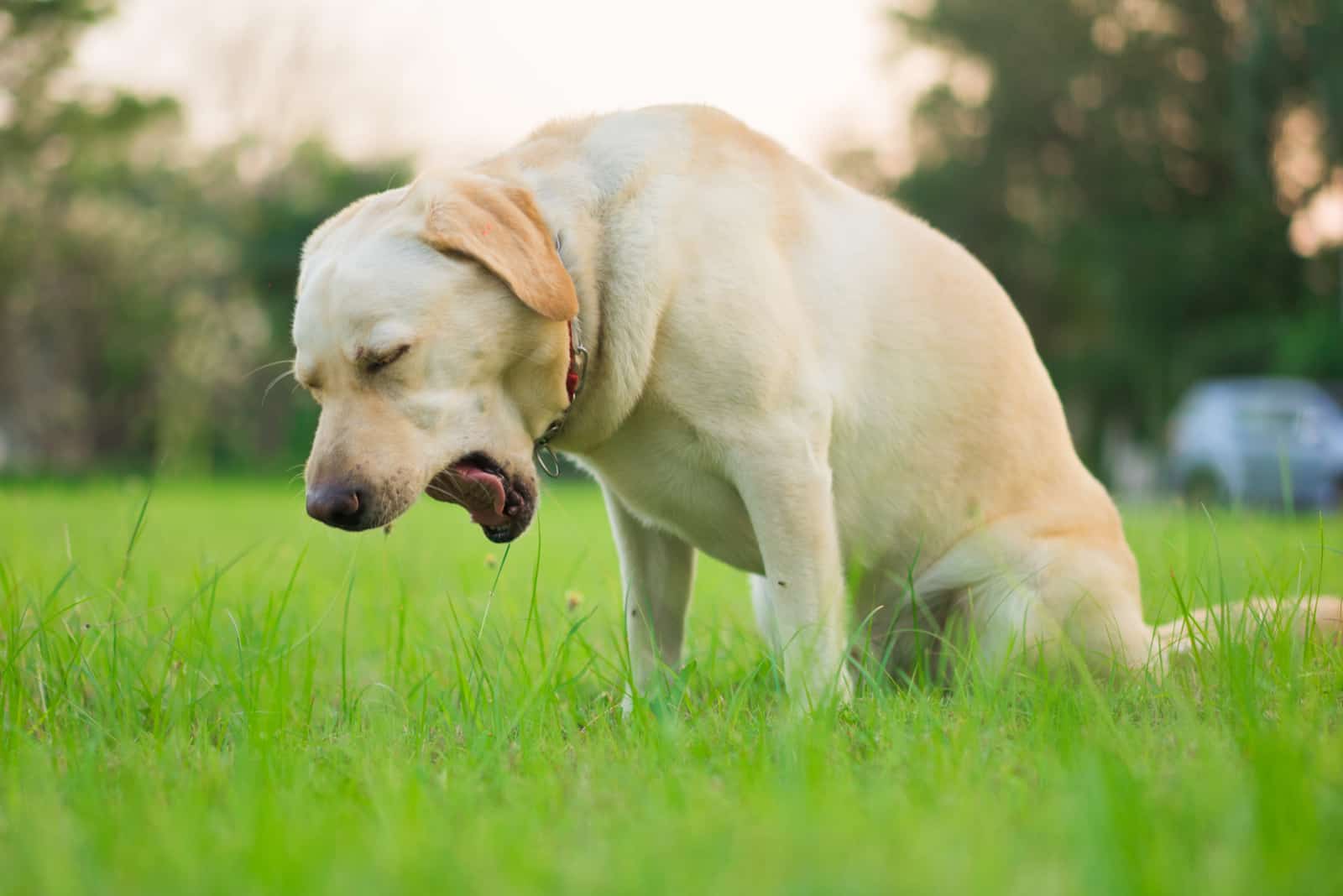
Kennel Cough, or also medically known as Canine Infectious Tracheobronchitis, is a very serious respiratory disease. It is also highly contagious, which means that it can spread easily from one dog to another.
If your dog is usually in contact with other dogs at the playground or during walks, you should be aware of this disease and its symptoms. The good thing is that it is easily treatable; however, for puppies younger than six weeks old, it can be very dangerous.
To simplify things and make it easier to understand, Canine Tracheobronchitis can be also explained as the “common cold” in the dog world.
Kennel cough is caused by a bacterium called Bordetella Bronchiseptica, or Parainfluenza virus, and just like many other viruses, it is contagious.
Dogs can get it by being in contact with other contagious dogs, or even just licking a surface where the virus is. In any case, the virus gets inside of the dog’s body and causes different symptoms.
The result of this can be a strange hoarse cough that sounds really awful. It means that the trachea is inflamed, and because of that, drinking water puts a strain on the already painful trachea, which then causes your dog to cough.
What Are Kennel Cough Symptoms?
Some symptoms of Kennel cough are:
• a dry, hoarse cough
• sneezing
• runny nose
• pneumonia
• low fever
• loss of appetite
• lethargy
Kennel Cough Treatment
Thankfully, kennel cough can be easily treatable. Usually, the best way to treat it is to give your dog enough rest.
However, it is always important to check with your vet because sometimes, a cough can also be a sign of a much more severe disease, which could be confused for kennel cough.
Such diseases could be bronchitis, asthma, heart diseases, or a collapsing trachea, which we will talk about more later on.
Always speak with your veterinarian because he will prescribe you with the needed medication and give you advice on what you should do.
He may prescribe you some antibiotics or different cough suppressants to prevent the disease from spreading and developing into more severe conditions.
If you have more dogs in the house, even if they haven’t shown any symptoms, there are high chances that they have been exposed also, and they might need some kind of treatment.
If a dog is suffering from kennel cough and his trachea is still too sensitive and painful, many vets advise pet owners to use a harness rather than a collar because a collar puts additional pressure on the said trachea.
Kennel cough is also possible to prevent because there are vaccines for this disease. Your dog will need two doses, and a booster dose every six months.
For those dogs that are always in contact with other dogs at a doggy day care, or at training and sport clubs, it is highly advisable for them to be vaccinated as a matter of prevention.
How Do You Tell The Difference Between Kennel Cough And Heartworm?
Heartworm is a serious disease in dogs, which can lead to lung disease, heart failure, organ damage, and eventually death.
It is transmitted by mosquito bites, and it has similar symptoms as kennel cough, so it is important to know and understand the differences between these two diseases.
Similar to kennel cough, heartworm will cause lethargy, loss of appetite, and weight loss; however, the cough that is caused by heartworm is a bit different.
Kennel cough is sporadic and strong while coughing from heartworm is more persistent and dry.
4. Water Or Debris Blocking The Windpipe
The first of many problems that could be the reason why your dog coughs after drinking water is that something is blocking its windpipe.
Coughing is a dog’s natural reflex of protecting its respiratory system, and just like we humans, we cough to remove foreign objects, debris, mucus, or simply to clear our throat.
A dog’s respiratory system is quite delicate, and if something messes with it, it can cause difficulties with breathing and feeding.
The trachea (or the windpipe) consists of muscles, tissue, and many cartilage rings that all make sure that your dog breathes, eats, and drinks normally.
If the dog ingests some foreign material like debris, dust, or objects that are too large for his esophagus, it can cause coughing and difficulty breathing.
If the water that the dog drinks goes in the wrong way, or your dog gulps the water too fast, this coughing can also happen.
However, this is nothing serious, and you shouldn’t be worried. The only thing is to teach your dog to drink slowly in order to prevent the water from getting into his airway.
5. Reverse Sneezing
Reverse sneezing is the name as the condition called paroxysmal respiration. Even though it is not technically a cough, many dog owners often confuse it for such.
It is called reverse sneezing because dogs rapidly suck in air, causing a larynx spasm, and then they blow it out, which makes it the opposite of sneezing.
This can occur after a dog drinks water, and it can happen in many dog breeds; however, it is most common in short-muzzled breeds.
The sound that dogs produce while reverse sneezing is similar to a snorting fit, and it is usually associated with a honking sound that helps dog owners recognize the condition.
This condition, as already said, is typical for many breeds, and it is not one that should cause much concern; however, it shouldn’t be dismissed so lightly because it can be a sign of many severe conditions like the trachea collapsing, or other degenerative diseases.
Reverse Sneezing Treatment
One thing that you can do when your dog is reverse sneezing is hold your dog’s nostrils closed for a couple of seconds and massage the dog’s throat while lightly blowing air at its face.
This will help stop spasms from further happening, and help your dog to swallow. You can also try to bring your dog outside for fresh air or get him into a cool place. Verbally calming him down can also help!
Most dogs will not need the veterinarian’s help; however, if the problem is constantly happening, then some medications will be needed because the condition may be chronic or caused by allergies.
Always consult your veterinarian for more information and advice on remedies!
6. Gagging
Some dogs have really high energy levels, and they simply love food too much – to the extent that it looks like they haven’t eaten anything for a long time, or as if it was their last meal forever (such drama queens).
When a dog is gulping water and eating dog food with great speed, of course, some reflexes will be triggered.
Often, this will be the reason why the dog coughs after drinking water as well as why it is gagging. It is a natural way of the dog’s body protecting its lungs, and there is nothing to worry about.
Well, it is nothing serious, but if it continues to happen regularly, you might need to train your dog to slow down drinking and eating.
Try to calm him down before giving him any food or water, or buy those slow-feeding dog bowls, which will significantly help your dog to drink water slower.
How Do You Help Your Dog’s Coughing After Drinking Water?
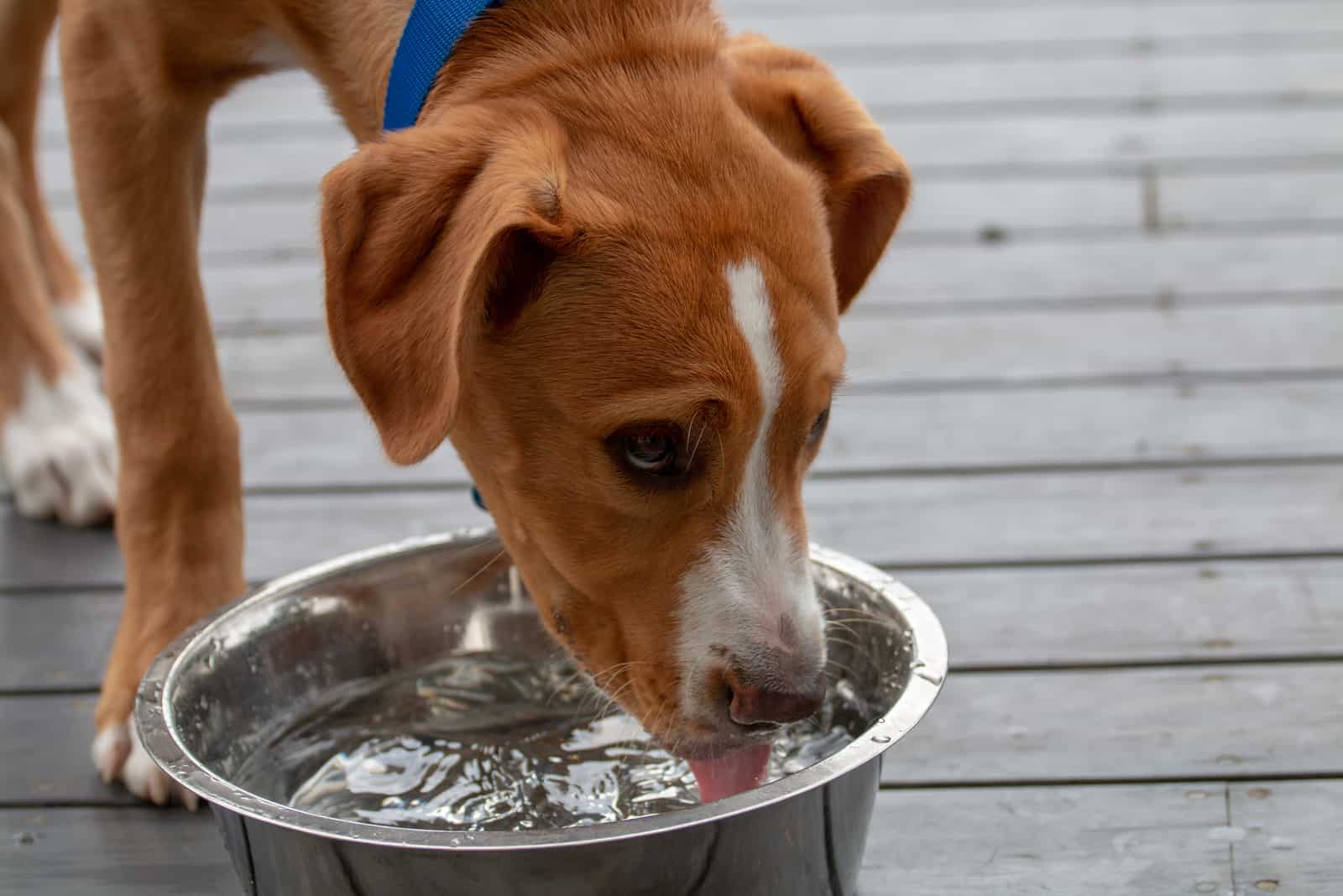
Dog Training
We have mentioned this before, but sometimes the reason why your dog coughs after drinking water can be simply because he or she is too excited and gulps the water too fast, resulting in it going down the wrong way, which causes the cough.
In this case, you must teach your dog to take things slowly, and not to be too excited. This is usually the case with high-energy dogs.
Some things that you can do are:
• Make a water supply limit – Limit their water supply, and only refill it when needed so they don’t have the chance to drink a lot of water too fast. Just make sure you don’t forget to refill it since water is important for dogs to stay hydrated.
• Anti-gulping dog bowl – This is a great solution that is specifically designed to slow down your dog’s drinking. The bowl is designed with bumps, so the dog has to lick around them to drink the water, which makes him drink much slower.
• DIY projects – There are also some DIY things that you can do, such as putting a ball or an ice cube in their water bowl. This can also be really effective – just be careful of the risk of having the dog choke on it.
Consult A Vet
If you have a feeling that your dog’s coughing does not sound good or normal, then you should, of course, consult your vet. Don’t just wait for it to pass or think it is probably nothing serious to bother a professional about.
Sometimes, it can be the case that it is nothing too serious, but you can never know for sure, and if you do not react properly, then your dog may start developing more serious issues, which could be life-threatening if left untreated.
It is always better to check than to feel sorry afterward. A vet will always advise you on what the best thing is to do, prescribe you needed medication, or if the situation is really serious, suggest that your pup might need an operation.
A professional’s advice can help save your dog’s life. Remember that dogs can’t talk and tell us that something is not alright, so sometimes, when other symptoms occur, it could be too late.
Dog’s Quarantine
If your dog is infected with kennel cough or some other infectious disease, then you must separate the infected dog from the others because it can be easily transmitted.
You should also try to clean all the surfaces in the house and disinfect everything that you can in order to prevent other dogs from catching it.
The dog’s quarantine should last at least 14 days after the first symptoms are noticed. This is how long it takes for a dog to get better and be completely free of a virus.
After this period, your dog shouldn’t be contagious anymore, and should be free to play with other dogs.
Of course, it is always recommended to consult a veterinarian who can perform an examination and confirm the cessation of the infection.
What Is A Trachea And How Does It Function?
A dog’s trachea (or windpipe) is a respiratory tube that is located between the lungs and the throat. It consists of cartilage, muscles, and tissue. When a dog breathes, the air goes through the nose or the mouth to the lungs, and outside the lungs.
There is also a small flap called the epiglottis, which closes the opening when food or water passes through in order to make it go to the digestive system, then it opens the airway.
If, by any chance, something is wrong with the trachea, then problems arise. If the trachea is weakened or inflamed, then it is possible that your dog will cough, gag, or experience many other respiratory problems after drinking water.
What Does A Dog’s Cough Sound Like?
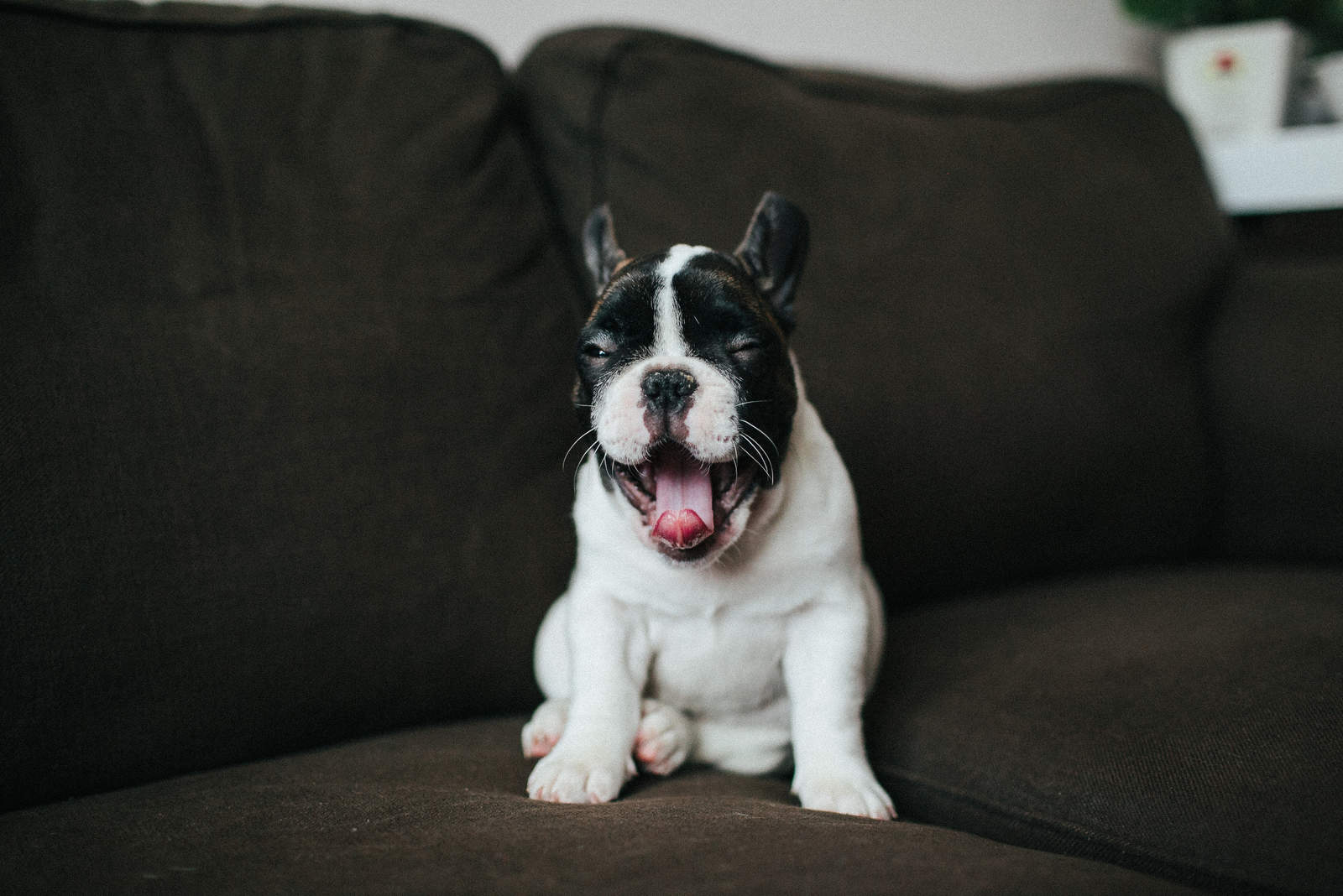
In order to know if there is a problem with your dog’s cough, it is important to observe your dog’s behavior and pay close attention to it.
This will help you be able to know whether a specific sound is a reason for an emergency visit, help you determine what is causing your dog to act that way, and help your vet to know the exact symptoms.
It is also important to know when your dog is coughing the most. Does it happen mostly at night, when he is exercising, or perhaps when he is lying down? All these things can be crucial for understanding what is making your dog cough.
A dog’s cough can sound different, and those sounds can help you determine what problems your dog is dealing with.
• Dry cough – This is usually described as a hacking cough as it sounds like something is stuck in your dog’s throat. This raspy-sounding cough is usually the symptom of kennel cough (an upper respiratory disease that is contagious) or the common flu in dogs.
• Honking cough – This deep and dry cough that sounds like a goose honking is mostly the symptom of a collapsed trachea.
• Wet cough – A wet, moist-sounding cough that sounds like your dog is coughing up phlegm or gargling is a sign of dog flu or pneumonia. You must contact your vet immediately if you notice this kind of cough!
• High-pitched cough – This usually sounds like the dog is gagging. This can be a sign of a blocked trachea, upper airway irritation, or a sore throat.
Not only the sound, but also the time of the cough is important. If your dog is only coughing at night, it can be a sign of some medical condition. You should always tell it to your vet, so he can find out what is going on and prepare a treatment plan if it is necessary.
In conclusion
If you ever asked yourself: “Why my dog coughs after drinking water?”, now you know all the possible reasons, which can help you prevent it from happening in the future.
Dogs cough for many reasons whether it is for just simply clearing its throat or a sign of a possible life-threatening disease. The bottom line is that it’s not a disease of itself, but a sign that something is wrong.
If it is noticed in its early stages, it can help the diagnosis of the medical condition. This is the reason why it is important to always be aware of the small things and changes in your dog’s behavior.
If you feel like your dog’s cough is not just a simple throat clear or gag reflex, then you should contact your veterinarian who will diagnose your dog and make a treatment plan.
By doing this, you will ensure your dog has a long and happy life. Your furry friend will be able to drink water normally without those annoying coughs bothering him.
Read Next: Dog Throwing Up White Foam: Upset Stomach Or Something Else?

